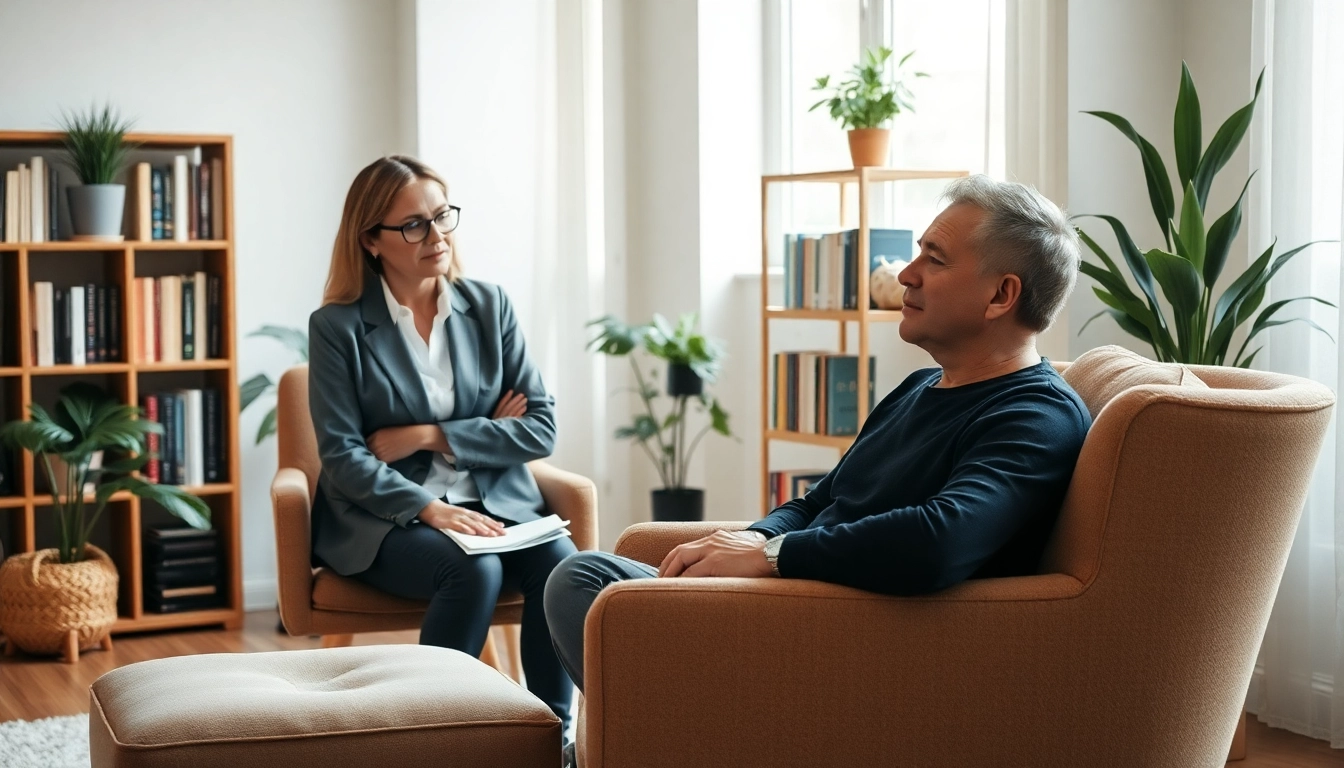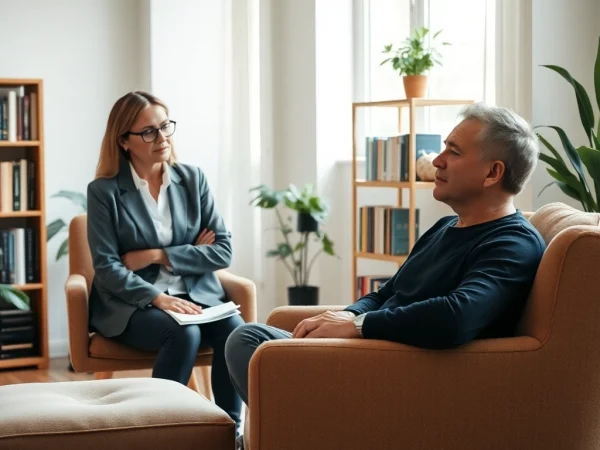Understanding the Role of an Attachment Theory Specialist in Healing Relationships
The Essentials of Attachment Theory
What is Attachment Theory?
Attachment theory is a psychological framework that explores the dynamics of long-term relationships between humans. Originally formulated by British psychologist John Bowlby in the 1950s, the theory posits that the bonds formed in early childhood between children and their primary caregivers significantly influence their emotional and social development. These early attachments can dictate how individuals react to and engage in later relationships, affecting emotional regulation, relationship stability, and interpersonal interactions throughout their lives.
At its core, attachment theory centers on the idea that humans are born with an innate emotional need to form attachments to others. Children seek proximity to caregivers not only for physical safety but also for emotional security, which lays the groundwork for healthy adult relationships. In fact, secure attachment—marked by consistency and responsiveness from caregivers—can foster positive outcomes in social and emotional functioning, whereas insecure attachments can lead to emotional challenges. Understanding these patterns is vital for those in therapy and counseling, making it essential to consult an attachment theory specialist when navigating relational difficulties.
Historical Context and Development
The origins of attachment theory can be traced back to the insights of John Bowlby, who observed children’s reactions when separated from their primary caregivers. His work, particularly in the context of World War II, demonstrated how separation could lead to profound psychological distress. He emphasized that the attachment bond serves several critical functions, including providing security, facilitating exploration, and encouraging resilience in the face of adversity.
Mary Ainsworth, a developmental psychologist, further contributed to the understanding of attachment with her Strange Situation experiment in the 1970s. Ainsworth’s classification of attachment styles—secure, anxious, and avoidant—built upon Bowlby’s foundation and provided practical mechanisms for identifying and addressing attachment-related behaviors in children. These concepts have since evolved and expanded into adult attachment theory, further illustrating how early experiences shape adult relational patterns.
Key Concepts in Attachment Theory
Attachment theory encompasses several key concepts that are vital for practitioners and clients alike. Understanding these concepts can facilitate healthier relational dynamics and stronger emotional health.
- Attachment Styles: These styles vary among individuals and influence how a person behaves in relationships. They can be categorized into secure, anxious, avoidant, and disorganized attachment styles.
- Internal Working Models: These are mental representations of self and others developed through early interactions with caregivers. They shape one’s expectations and beliefs about relationships and emotional availability.
- Attachment Behaviors: These behaviors are strategies individuals use to maintain closeness to their attachment figures. This could include seeking reassurance or avoiding intimacy.
- Attachment Related Disruptions: Disruptions to attachment, such as loss, trauma, or inconsistent caregiving, can have lasting effects and may lead to various psychological issues later in life.
The Role of an Attachment Theory Specialist
Defining the Attachment Theory Specialist
An attachment theory specialist is a trained mental health professional who focuses on understanding and treating issues related to attachment styles and relationships. These specialists can be psychologists, counselors, or therapists who have undergone specific training in attachment theory and its practical applications. Their role is pivotal in helping individuals navigate the complexities of their relationships, whether they are dealing with personal, familial, or romantic challenges.
Necessary Qualifications and Training
Becoming an attachment theory specialist typically involves rigorous education and training in psychology or counseling. A master’s or doctoral degree in psychology, social work, or related fields is usually a prerequisite. Moreover, a strong foundation in developmental psychology and familiarity with attachment-based therapies, such as Emotionally Focused Therapy (EFT), is crucial. Many attachment specialists also pursue additional certifications focusing specifically on attachment-based interventions and therapeutic techniques.
Continuing education is essential, as the field of attachment theory is continually evolving with ongoing research. This ensures that specialists stay updated on the latest findings and therapeutic approaches, allowing them to provide the best care for their clients.
How They Can Help Clients
Attachment theory specialists employ various strategies to help clients overcome relational difficulties. By assisting clients in understanding their attachment styles, these professionals can provide insights that lead to improved emotional health and better relationships.
Interventions may include:
- Psychoeducation: Educating clients about attachment styles and their impact on behavior and relationships can empower them to make informed decisions.
- Therapeutic Techniques: Utilizing techniques based on attachment theory, specialists can guide clients in exploring their relational patterns and breaking negative cycles.
- Building Secure Attachment: Specialists work to help clients develop secure attachment traits by modeling positive relational behaviors and encouraging vulnerability and trust.
Common Issues Addressed by Attachment Theory Specialists
Anxiety and Attachment Styles
Attachment styles have profound implications for mental health, particularly in relation to anxiety disorders. Individuals with anxious attachment styles may experience heightened levels of anxiety, manifesting in relationship contexts as fear of abandonment or rejection. Therapy helps in recognizing these patterns, enabling individuals to confront and manage their anxieties effectively.
Attachment theory specialists often employ strategies such as mindfulness and cognitive-behavioral techniques to assist clients in reframing their thoughts and anxieties. By fostering greater self-awareness and emotional regulation, these individuals can work towards a more secure attachment style, enhancing their overall well-being.
Impact of Trauma on Attachment
Trauma can severely disrupt the development of healthy attachment, resulting in the formation of disorganized attachment styles. Individuals who experience trauma, particularly in childhood, might struggle with establishing and maintaining close relationships. Signs of this can include intense fear of intimacy, hyper-vigilance, and emotional dysregulation.
An attachment theory specialist can help clients process their traumatic experiences within a safe, therapeutic environment, allowing them to begin healing. Therapies may include somatic experiencing or trauma-focused cognitive behavioral therapy, which are designed to help individuals address the emotive components of trauma and move towards forming healthier attachments.
Improving Relationships through Understanding
One of the most significant benefits of working with an attachment theory specialist is the potential for improved interpersonal relationships. Understanding one’s own attachment style, as well as that of partners, family members, and friends, can lead to more compassion and less misunderstanding. By deciphering relational dynamics through the lens of attachment, individuals can learn to communicate more effectively, set clear boundaries, and foster meaningful connections.
Therapists also encourage clients to practice empathy towards themselves and others, paving the way for healthier emotional exchanges and deeper relationships over time.
Finding the Right Attachment Theory Specialist
Search Tips for Clients
When searching for an attachment theory specialist, clients should consider various factors to ensure a good fit. It’s essential to research their qualifications, focus areas, and specific approaches to therapy. Many professionals provide an online presence through websites or profiles that typically list their specializations, including attachment theory.
Additionally, platforms such as local therapy directories can help people find specialists in their area. Referrals from trusted friends, family, or primary care physicians can also be valuable in locating a suitable attachment theory specialist.
Questions to Ask Potential Specialists
Before engaging with a therapist, it’s important to ask pertinent questions to gauge their suitability. Here are some examples of questions clients might consider:
- What approach do you take when working with clients with attachment issues?
- Do you incorporate any specific attachment-based techniques into your therapy?
- What are your qualifications and experience in attachment theory?
- How do you measure progress in therapy?
Evaluating Compatibility and Approach
Ultimately, finding the right attachment theory specialist is not only about qualifications but also about compatibility. After an initial consultation, clients should evaluate how comfortable they feel discussing personal challenges and whether the therapist’s approach aligns with their needs. It’s essential to recognize that building trust and rapport takes time, and it’s okay to seek out different therapists until the right fit is found.
Future Directions in Attachment Theory Practices
Trends in Therapy and Consultation
The field of attachment theory is rapidly evolving, with ongoing research indicating the critical role of attachment in psychological resilience and relational success. Emerging trends include the integration of neurobiological insights, emphasizing the interconnections between brain development and attachment formation. Therapists are increasingly adopting holistic approaches that consider physical health, mindfulness, and emotional well-being as interconnected components of attachment.
Moreover, online therapy and digital mental health solutions are redefining how services are delivered, breaking down geographic barriers and expanding accessibility to individuals seeking help with attachment issues.
The Role of Research in Practice
Research plays a pivotal role in shaping the practices of attachment theory specialists. Ongoing studies help elucidate the long-term effects of childhood attachment styles on adult behavior and relationships, leading to more informed therapeutic strategies. Furthermore, cross-disciplinary research incorporating developmental psychology, neuroscience, and social sciences provides a more comprehensive understanding of how attachments influence overall human behavior.
Creating Awareness of Attachment Issues
As we move forward, raising awareness about attachment-related issues remains crucial. Campaigns and educational initiatives aimed at clients, healthcare professionals, and educators can promote understanding of attachment styles and their implications, fostering healthier emotional development from a young age. Schools and parenting programs can incorporate attachment theory education to help parents cultivate secure attachments with their children, creating a generational shift towards more emotionally healthy individuals.










